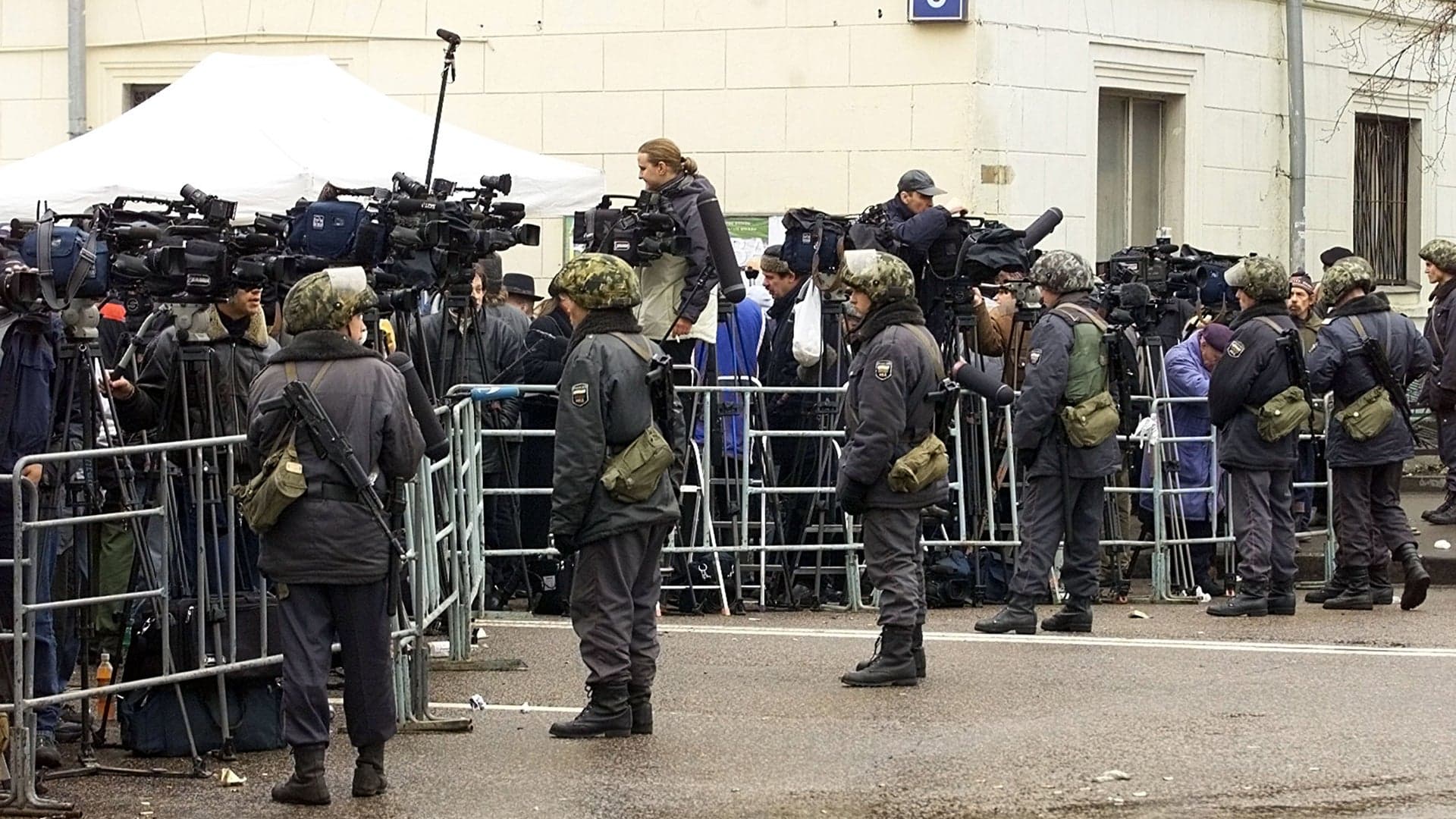On October 23, 2002, about 50 Chechen rebels storm a Moscow theater, taking up to 800 people hostage during a sold-out performance of a popular musical.
The second act of the musical “Nord Ost” was just beginning at the Moscow Ball-Bearing Plant’s Palace of Culture when an armed man walked onstage and fired a machine gun into the air. The terrorists—including a number of women with explosives strapped to their bodies—identified themselves as members of the Chechen Army. They had one demand: that Russian military forces begin an immediate and complete withdrawal from Chechnya, the war-torn region located north of the Caucasus Mountains.
Chechnya, with its predominately Muslim population, had long struggled to assert its independence. A disastrous two-year war ended in 1996, but Russian forces returned to the region just three years later after Russian authorities blamed Chechens for a series of bombings in Russia. In 2000, President Vladimir Putin was elected partly because of his hard-line position towards Chechnya and his public vow not to negotiate with terrorists.
After a 57-hour-standoff at the Palace of Culture, during which two hostages were killed, Russian special forces surrounded and raided the theater on the morning of October 26. Later it was revealed that they had pumped a powerful narcotic gas into the building, knocking nearly all of the terrorists and hostages unconscious before breaking into the walls and roof and entering through underground sewage tunnels. Most of the guerrillas and 120 hostages were killed during the raid. Security forces were later forced to defend the decision to use the dangerous gas, saying that only a complete surprise attack could have disarmed the terrorists before they had time to detonate their explosives.
After the theater crisis, Putin’s government clamped down even harder on Chechnya, drawing accusations of kidnapping, torture and other atrocities. In response, Chechen rebels continued their terrorist attacks on Russian soil, including an alleged suicide bombing in a Moscow subway in February 2004 and another major hostage crisis at a Beslan school that September.
READ MORE: How Opioids Were Used as Weapons During the Moscow Theater Hostage Crisis

